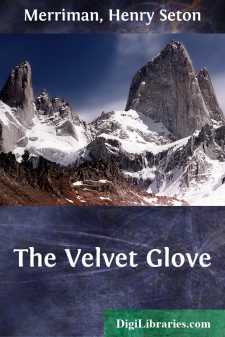Categories
- Antiques & Collectibles 13
- Architecture 36
- Art 48
- Bibles 22
- Biography & Autobiography 813
- Body, Mind & Spirit 142
- Business & Economics 28
- Children's Books 15
- Children's Fiction 12
- Computers 4
- Cooking 94
- Crafts & Hobbies 4
- Drama 346
- Education 46
- Family & Relationships 57
- Fiction 11829
- Games 19
- Gardening 17
- Health & Fitness 34
- History 1377
- House & Home 1
- Humor 147
- Juvenile Fiction 1873
- Juvenile Nonfiction 202
- Language Arts & Disciplines 88
- Law 16
- Literary Collections 686
- Literary Criticism 179
- Mathematics 13
- Medical 41
- Music 40
- Nature 179
- Non-Classifiable 1768
- Performing Arts 7
- Periodicals 1453
- Philosophy 64
- Photography 2
- Poetry 896
- Political Science 203
- Psychology 42
- Reference 154
- Religion 513
- Science 126
- Self-Help 84
- Social Science 81
- Sports & Recreation 34
- Study Aids 3
- Technology & Engineering 59
- Transportation 23
- Travel 463
- True Crime 29
From One Generation to Another
Description:
Excerpt
CHAPTER I
THE SEED
Il faut se garder des premiers mouvements, parce qu'ils sont presque toujours honnétes.
"Dearest Anna,—I see from the newspaper before me of March 13, that I am reported dead. Before attempting to investigate the origin of this mistake, I hasten to write to you, knowing, dearest, what a shock this must have been to you. It is true that I was in the Makar Akool affair, and was slightly wounded—a mere scratch in the arm—but nothing more. I have not written to you for some months past because I have been turning something over in my mind. Anna, dearest, there is no chance of my being in a position to marry for some years yet, and I feel it incumbent upon me …"
This letter, half written, lay on a camp table before a keen-faced young officer. He ceased writing suddenly, and, leaping to his feet, walked to the door of his bungalow, which was open to the four winds of heaven. In doing this he passed from the range of the lazy punkah flapping somnolently over table and bed. It may have been this sudden change to hotter air that caused him to raise his hand to his forehead, which was high and strangely rounded.
"By George!" he said, "suppose I do it that way!"
He walked rapidly backwards and forwards with the lithe actions of a man of steel, a light weight, of medium height, keen and quick as a monkey. His black eyes flitted from one object to another with such restlessness that it was impossible to say whether he comprehended what he saw or merely looked at things from force of habit.
He was dark of hair with a sallow complexion and a long drooping nose—the nose of Semitic ancestors. A small mouth, and the chin running almost to a point. A face full of interest, devoid of distinct vice—heartless. Here was a man with a future before him—a man whose vices were all negative, whose virtues depended entirely upon expediency. Here was a man who could be almost anything he liked; as some men can. If expediency prompted he could be a very depôt of virtues; for his body, with all the warmer failings of that part of humanity, was in perfect control. On the other hand, there was no love of good for goodness' sake—no conscience behind the subtle eyes. All this, and more, was written in the face of Seymour Michael, whose handwriting had dried some moments before on the half-filled sheet of letter-paper.
He returned and stood at the table with slightly bowed legs—not the result of much riding, although he wore top-boots and breeches as if of daily habit—but a racial defect handed down like the nasal brand from remote progenitors. He looked at letter and newspaper as they lay side by side—not with the doubtfulness of warfare between conscience and temptation, but with a calculating thoughtfulness. He was not wondering what was best to do, but what the most expedient.
Those were troublesome times in India, for the Mutiny was not quelled, and each mail took home a list of killed, slowly compiled from news that dribbled in from outlying stations, forts, and towns....












